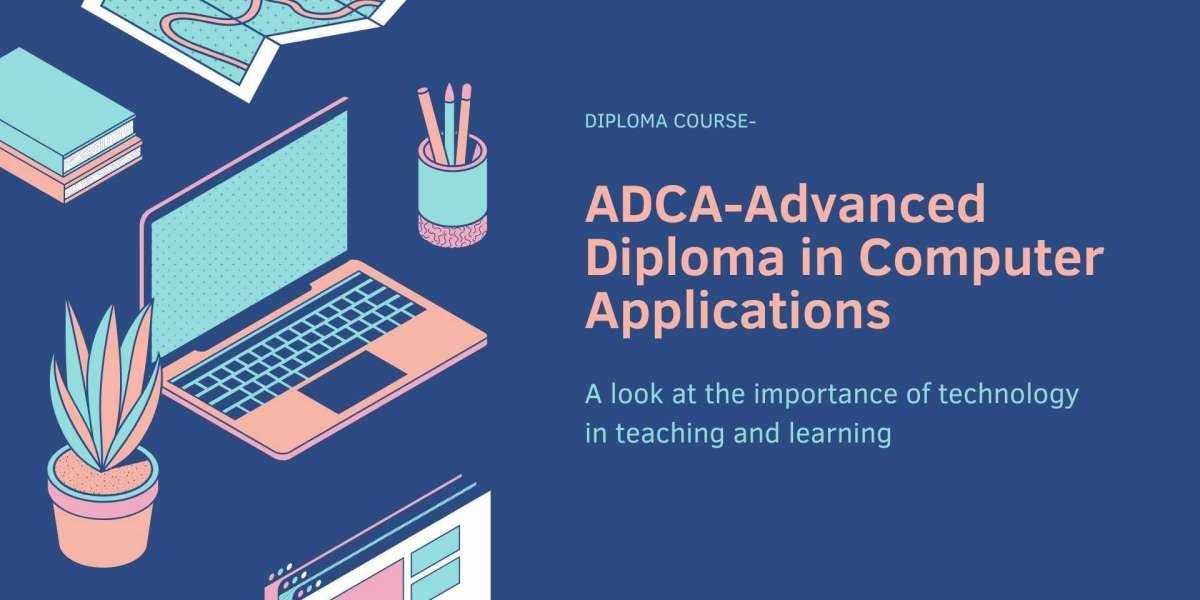The digital age has revolutionized the way people work, and freelancing has become one of the most popular career choices. It offers flexibility, freedom, and a chance to work from anywhere. However, to succeed as a freelancer, having the right skills is essential. This is where the ADCA full form, which stands for Advanced Diploma in Computer Applications, comes into play.
This article will explore how an ADCA course can help you build a successful freelancing career, the skills you'll gain, and why this qualification is ideal for those looking to work online.
What is ADCA?
The ADCA full form is Advanced Diploma in Computer Applications. It is a short-term course that equips individuals with practical skills in computer applications, programming, and software tools. The curriculum covers a wide range of topics, including:
- Basics of computers and operating systems
- MS Office (Word, Excel, PowerPoint)
- Internet applications
- Programming languages like C, C++, and Java
- Web development (HTML, CSS, and JavaScript)
- Database management systems (DBMS)
- Accounting software like Tally
This course is designed for beginners as well as professionals who want to gain practical skills in computer applications. It is particularly beneficial for freelancers as it covers a variety of tools and software that are frequently used in online work.
Why Choose ADCA for Freelancing?
Freelancing involves working independently on projects for various clients. It requires a mix of technical skills, communication abilities, and time management. Here’s how an ADCA course can prepare you for a successful freelancing career:
1. Broad Skill Set
The ADCA course covers a wide range of skills, from basic computer operations to advanced programming and web development. This diversity allows freelancers to take on a variety of projects, including data entry, graphic design, web development, and software support.
2. In-Demand Technical Knowledge
Freelancers often need to stay updated with the latest technology trends. ADCA ensures you are proficient in the most commonly used tools and software in the market, such as Tally for accounting, MS Office for documentation, and programming languages for website and application development.
3. Cost-Effective Learning
Compared to other diploma courses, ADCA is affordable and offers high returns on investment. For aspiring freelancers, it’s an excellent way to gain professional skills without spending a fortune.
4. Flexible Career Options
After completing the ADCA course, you can choose from a variety of freelance jobs, including:
- Virtual Assistant
- Data Entry Specialist
- Web Developer
- Graphic Designer
- Digital Marketing Consultant
- Content Writer with SEO Expertise
- Database Manager
5. Work-from-Home Advantage
The skills you gain in an ADCA course are highly compatible with remote work. With a stable internet connection and a good understanding of software and tools, you can easily work from home or any location.
6. Portfolio Building
An ADCA course often includes project-based learning, which allows you to create a portfolio showcasing your skills. Whether it’s a website you’ve designed or a database system you’ve managed, these projects serve as proof of your abilities when pitching to clients.
How ADCA Helps You Stand Out as a Freelancer
In a competitive freelancing market, standing out is crucial. Here’s how ADCA certification helps:
1. Professional Certification
Having an ADCA certification on your profile adds credibility and assures clients of your expertise. Platforms like Upwork and Fiverr often require freelancers to showcase their qualifications, and ADCA certification can give you a competitive edge.
2. Enhanced Productivity
The tools and techniques taught in ADCA, such as shortcuts in MS Office and efficient data management, improve your productivity. This means you can handle more projects in less time, increasing your income.
3. Problem-Solving Skills
ADCA courses teach logical thinking and problem-solving through programming and software troubleshooting. These skills are invaluable when working on freelance projects that require quick solutions to technical issues.
4. Communication Tools
ADCA includes training in internet applications and communication tools. These are essential for effective client communication, proposal writing, and project updates.
5. Opportunity for Specialization
Freelancers with specialized skills often command higher rates. With ADCA, you can specialize in areas like web development, database management, or graphic design, enabling you to charge premium fees for your services.
Steps to Build a Freelancing Career After ADCA
Here’s a step-by-step guide to starting your freelancing journey with the skills gained from an ADCA course:
1. Choose Your Niche
Decide on the area you want to specialize in based on your strengths. For instance, if you’re good at programming, focus on web development or software support. If you prefer simpler tasks, data entry or virtual assistance could be ideal.
2. Build a Portfolio
Use the projects you complete during your ADCA course to create a professional portfolio. A well-documented portfolio showcasing your skills can attract potential clients.
3. Register on Freelancing Platforms
Sign up on popular freelancing platforms like Upwork, Fiverr, Freelancer, and Toptal. Create a professional profile highlighting your ADCA certification and the services you offer.
4. Start with Small Projects
Begin with smaller, simpler projects to gain experience and build your reputation. Gradually, you can move on to more complex and higher-paying tasks.
5. Network and Market Your Skills
Use social media platforms like LinkedIn, Instagram, and Facebook to promote your services. Networking with industry professionals and joining online communities can also help you find clients.
6. Stay Updated
Technology evolves rapidly, so it’s essential to keep learning even after completing your ADCA course. Attend webinars, take additional courses, and stay informed about industry trends.
Challenges of Freelancing and How ADCA Helps Overcome Them
Freelancing comes with its challenges, but an ADCA course can prepare you to tackle them effectively:
- Client Communication: ADCA trains you in email etiquette and online communication tools, ensuring smooth interactions with clients.
- Technical Issues: The technical knowledge gained in ADCA allows you to troubleshoot problems independently.
- Time Management: Learning productivity tools in ADCA helps you manage multiple projects efficiently.
- Building Trust: The certification acts as proof of your skills, making it easier to earn clients’ trust.
Conclusion
The ADCA full form stands for Advanced Diploma in Computer Applications, and it is an excellent choice for anyone looking to start a freelancing career. With its comprehensive curriculum, practical training, and flexibility, ADCA equips you with the skills needed to succeed in the online job market. Whether you want to work as a virtual assistant, web developer, or graphic designer, an ADCA course can open doors to countless opportunities.
By enrolling in an ADCA program, you’re not just learning technical skills—you’re investing in a career path that offers freedom, flexibility, and financial independence.
FAQs
1. What is the duration of the ADCA course?
The ADCA course typically takes 6 to 12 months to complete, depending on the institute and the mode of study.
2. Can I pursue freelancing while doing the ADCA course?
Yes, you can start freelancing while studying ADCA, especially if the course is online or part-time. The skills you learn can be applied immediately to freelance projects.
3. Is ADCA certification necessary for freelancing?
While not mandatory, an ADCA certification adds credibility to your profile and helps you attract clients.
4. What are the fees for an ADCA course?
The fees for ADCA courses vary by institute but are generally affordable, ranging from ₹10,000 to ₹25,000.
5. What freelancing jobs can I get with an ADCA certification?
With an ADCA certification, you can work as a web developer, graphic designer, virtual assistant, data entry operator, or digital marketing consultant.













